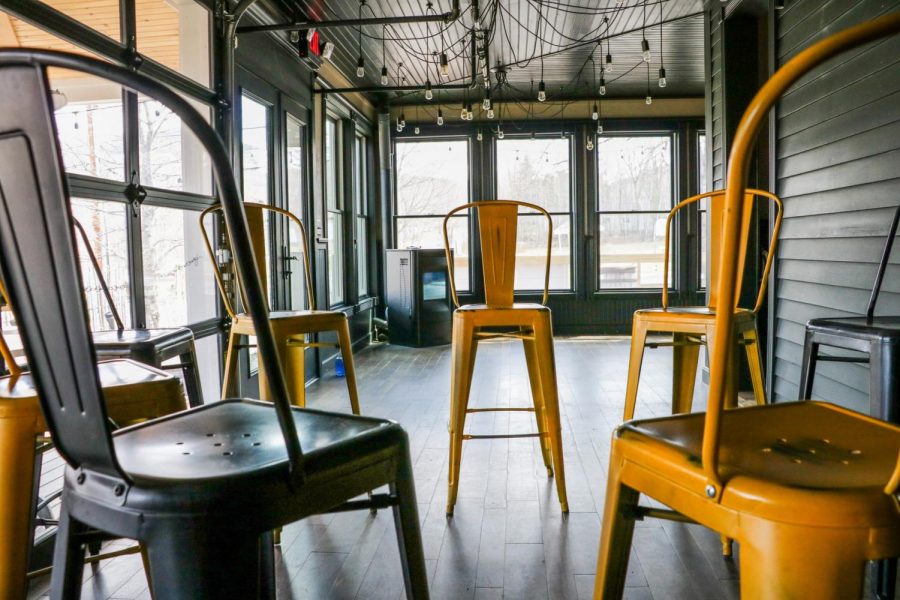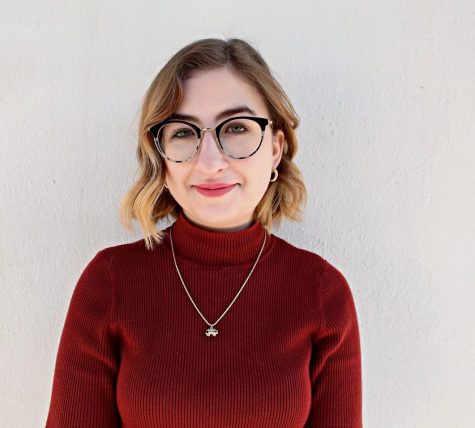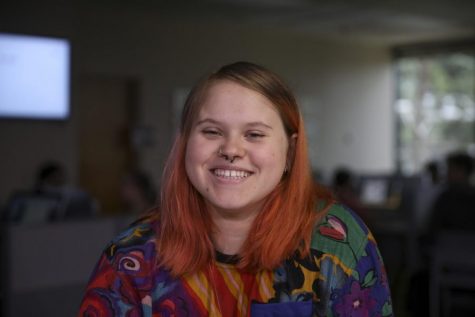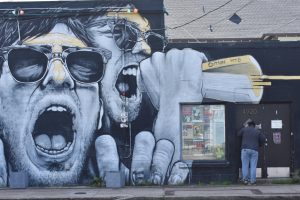Alcoholics Anonymous goes virtual during COVID-19
May 19, 2020
Skyler was isolated. They were anxious to be around people in public, plagued by a certain social paranoia. Feeling a lack of control, unable to see some semblance of a future, Skyler spent most of their time inside, drinking alone to feel something, or nothing, depending on the day.
But that was Skyler’s life before Alcoholics Anonymous, before COVID-19. Now a year sober, Skyler, who goes by gender neutral pronouns and whose name has been changed for anonymity, is determined that with the help of a digital A.A. network, even forced social isolation, the rise of alcohol sales nationwide and fears about alcohol use disorders rising won’t bring those habits back.
“For me, this would be the hardest time to drink,” Skyler said.
Skyler found A.A. during their senior year of college, after years of what they described as their own form of self-isolation, compounded and seemingly normalized by the drinking culture of college.
“I would always justify myself and the way I drank like, ‘Oh everyone else does it,’ but no one ever did it for the same reasons I did it,” Skyler said. “Alcohol was like my enemy. I knew that it had more power than I did. That being said, I couldn’t avoid it a whole lot.”
So Skyler turned to weed, psychedelics, any substance that could help them feel something and combat the power alcohol had over them. They avoided parties to avoid alcohol and people. They drove under the influence, sideswiping cars on two different occasions, one of the drivers never contacted Skyler, the other just let them go.
“I kept pushing myself to the limit,” Skyler said. “At first, I used these things to escape, but then I used them just to function. It’s really exhausting living that way.”
Not knowing how to stop using, Skyler said they became manic and suicidal.
“I didn’t know how to be sober, so I figured I should just die,” Skyler said.
But that was when Skyler was diagnosed bipolar and put on medication that required sobriety.
“When I got out of the hospital, it was maybe two hours later, and I was already high again. I was already drinking again. Two weeks later, I tried to have one drink,” Skyler said. “That was my last night of anything.”
When their church pastor sent out an email about an A.A. meeting for college students a week later, Skyler saw it as a sign.
“A.A. is not only for the old white man,” Skyler said. “It made me feel like I wasn’t the only one anymore.”
Even when COVID-19 hit, forcing Alcoholics Anonymous groups to meet on Zoom, Skyler kept up with the program, even sitting in on meetings from other cities with friends in L.A. and New York.
For Marcy G., a member of A.A. and an organization coordinator for the New Orleans chapter, the transition to virtual meetings was bumpy, but it has encouraged her to attend more meetings.
“Thank God for Zoom,” Marcy G. said. “I have tuned in to a 7:15 a.m. meeting and made it an everyday practice. I went to this meeting occasionally, but it wasn’t a general practice at all.”
She said her biggest concern after 15 years sober is not picking up a drink, but that the longevity of the pandemic may make it difficult for people inside and outside of A.A. to access services and a sense of community.
“As alcoholics in recovery, we have learned how to adapt to changes and we are just going to have to continue to super-adapt throughout this process because I, personally, don’t see it as short term,” Marcy G. said. “For many of us, we have been able to pick up tools that keep us from being isolated, but it is so easy to fall back into a pattern when you aren’t even going out the door.”
Skyler is determined to avoid that pattern.
“Sometimes it’s harder to hold yourself accountable when we are so used to others holding us accountable in the in-person meetings,” Skyler said. “But I know, for me, that if I only think negatively about what is happening, it’s a terrible thing that is happening obviously, but if I let that cloud my thinking, I can easily fall back to drinking.”
For information about the New Orleans Chapter of Alcoholics Anonymous and its 24/7 hotline visit aaneworleans.org
A schedule of New Orleans and national Zoom meetings is available here









